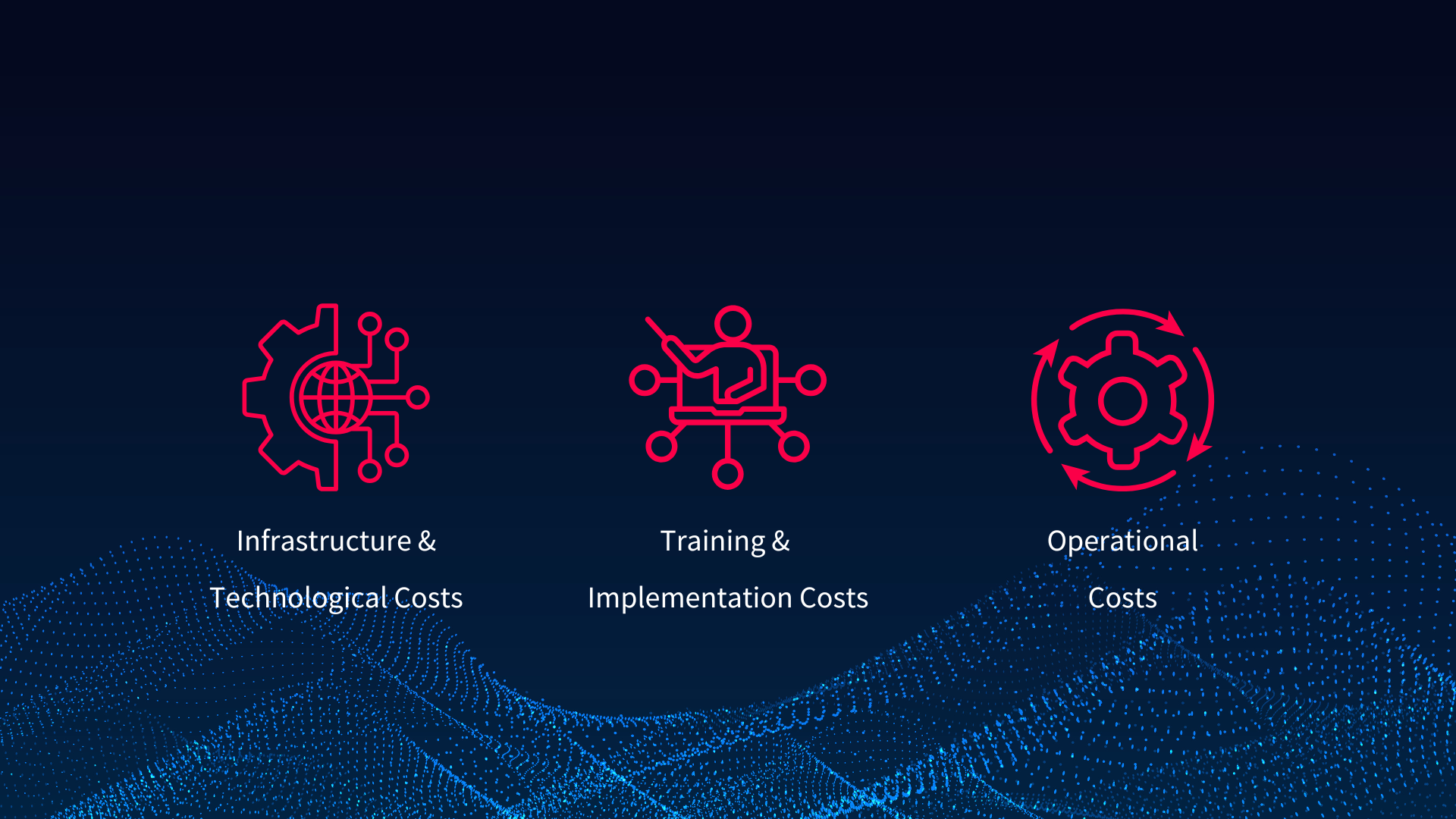The Cost-Benefit Analysis of Switching from Traditional SMS to RCS
With digital communication evolving at an unprecedented rate, businesses are rethinking their approach to customer interactions, looking beyond the limitations of traditional SMS. Enter Rich Communication Services (RCS) technology—a step up that offers advanced messaging capabilities to build deeper engagement with customers. But is the investment worth it? In this blog, we’ll break down the cost-benefit analysis of transitioning from SMS to RCS messaging and explore how RCS’s richer features can deliver a far greater return on investment.
What is Rich Communication Services Messaging?
Rich Communication Services is the next-generation evolution of SMS. While SMS has been a staple in business-to-customer (B2C) communication for years, its simplicity limits its effectiveness in our increasingly digital world. RCS messaging opens up a new range of possibilities with interactive features, multimedia content, chatbots, and read receipts—offering companies a way to create dynamic, engaging experiences right in the customer’s messaging app.
For companies looking to enhance customer interaction, RCS business messaging is a game-changer. But switching from SMS to RCS does involve a transition cost, so let’s dive into a cost-benefit analysis to see how the technology can deliver substantial long-term advantages.
The Cost of RCS
Breaking Down the Costs of RCS
Switching to RCS requires a few upfront investments. Here are the main costs to consider:
1. Infrastructure and Technology Costs
- Transitioning to RCS may require updates to the company’s messaging platform to support the new features. This could mean investing in an RCS-capable messaging API, adapting systems for chatbot integration, and handling multimedia files.
- Partnering with a provider like Yameo can help businesses avoid the complexity and expense of going it alone. With an experienced partner, the infrastructure setup is smoother, and businesses can integrate RCS without overhauling their entire communication framework.
2. Training and Implementation Costs
- Employees involved in managing customer communication will need training on how to use the new RCS features effectively.
- Messaging workflows may need to be restructured, particularly if chatbots or automation are introduced. Initial training and adjustments are typically minimal but necessary to ensure seamless operation.
3. Ongoing Operational Costs
-
- RCS may have slightly higher per-message costs than traditional SMS due to the added features. However, RCS messaging allows for reduced frequency by bundling more information into a single interaction, which may offset the cost per message over time. To give an example: if you send a SMS message to a customer which requires 320 characters you send 2 SMS messages of 160 characters each. With RCS you send just one message as there is no character limit. Depending on your use case, communication message and volume, RCS could well be cheaper than traditional SMS.

The Benefits
The Benefits of Switching to RCS
The upfront costs are manageable, but the benefits of RCS messaging deliver a long-term payoff that can revolutionize customer engagement and drive higher returns. Here’s why:
1. Enhanced Customer Engagement
RCS messaging enables companies to communicate through visuals, videos, interactive buttons, and more—all within a single message. This level of interactivity provides a far more engaging experience than SMS, leading to improved customer satisfaction and loyalty.
Example Benefit: An online retailer can use Rich Communication Services to send personalized recommendations with images and “Buy Now” buttons. Customers can complete purchases in just a few taps, reducing friction in the buying process and boosting conversion rates.
2. Higher Conversion Rates
Unlike SMS, where customers receive plain text with a link, RCS messaging allows businesses to send messages that act as mini-applications. By embedding quick-response buttons or interactive carousels, companies can reduce the steps needed for customers to act on a message, leading to higher conversion rates.
Example Benefit: A travel agency can send RCS messages with flight booking options, accommodation details, and payment options. Customers can explore, select, and book—all in one go, right in the chat. This streamlined approach significantly increases the likelihood of completed transactions.
3. Improved Brand Recognition and Trust
RCS business messaging supports branding features, such as verified sender identities and logos, which increase customer trust. With branded messaging, customers know they’re interacting with the legitimate company, reducing concerns around security and potential scams.
Example Benefit: A financial institution can use RCS messaging to communicate sensitive account details, reminders, or verification steps, with its logo and a verified sender status visible. This approach fosters customer confidence, especially in sectors like banking where trust is paramount.
4. Cost Efficiency Through Automation
The technology supports chatbots, allowing companies to automate a wide range of customer interactions. Automated responses for frequently asked questions, appointment bookings, or order updates help reduce the load on customer service teams. While there’s an initial setup cost for chatbots, the reduced need for manual intervention translates to long-term savings.
Example Benefit: A healthcare provider can use an RCS chatbot to help patients schedule appointments, confirm medical visits, and receive medication reminders. This automation cuts down on staffing costs while delivering a convenient customer experience.
5. Detailed Analytics for Optimized Campaigns
RCS messaging provides insights that go beyond the basic SMS metrics. With RCS, businesses can access read receipts, interaction data, and customer responses to interactive buttons, enabling a more comprehensive view of message performance. This level of analytics makes it easy for companies to refine their messaging campaigns, optimize content, and maximize ROI.
Example Benefit: A telecom company could analyze RCS message engagement to see which features drive the most customer interest—like video tutorials or quick-reply buttons—allowing them to tailor future campaigns based on real-time data.

Calculating ROI
Calculating the ROI: Why RCS Offers a Greater Return on Investment
By investing, companies can achieve far greater returns than what traditional SMS can offer. Here’s why Rich Communication Services delivers a stronger ROI:
- Higher Engagement and Conversions: Rich, interactive messaging directly impacts customer engagement and conversion rates, which can increase revenue more effectively than SMS ever could.
- Cost Savings Through Consolidation: Since RCS messages bundle multiple features into one interaction, they can often replace several individual SMS messages, reducing frequency and helping offset per-message costs.
- Enhanced Customer Retention: Customers are more likely to stay loyal to brands that offer seamless, engaging experiences. RCS messaging allows companies to provide the type of communication that keeps customers engaged long-term, which is essential for retention.
- Reduced Operational Costs via Automation: Automated chatbots handle repetitive tasks, freeing up customer service teams to focus on more complex queries, further reducing operational costs.
Partnering with Yameo for a Smooth Transition
Switching to Rich Communication Services may seem daunting, but with the right partner, the process can be streamlined and efficient. Yameo specializes in helping European companies make the leap to RCS business messaging, providing the infrastructure, expertise, and support needed to maximize the benefits of RCS technology.
Yameo works alongside your team to ensure the transition from SMS to RCS is smooth, from setting up the right messaging workflows to integrating advanced RCS features like chatbots and multimedia sharing. With Yameo, companies can avoid the pitfalls of a complicated implementation, ensuring that Rich Communication Services becomes a valuable part of their B2C communication strategy.
My Final Thoughts
RCS messaging is more than an upgrade from SMS; it’s a strategic investment in the future of customer engagement. By offering interactive features, automation, and a branded, secure experience, RCS business messaging delivers a more meaningful connection between companies and customers. Although there are costs to consider, the long-term benefits in terms of engagement, conversion rates, and operational savings make RCS a wise choice for companies aiming to stay competitive and build lasting customer relationships.


